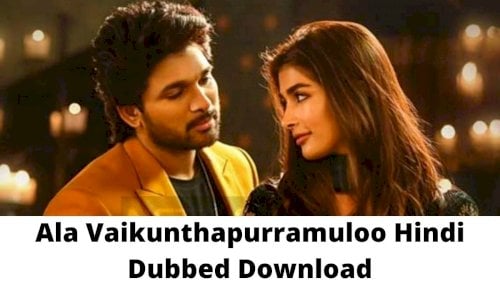
Thriller Movies Creating Horror Or Suspense Stories
Of all the genres of cinema, “thriller” is probably the most challenging movie category to define. Is there a difference between a thriller and a film noir?
Are thrillers just horror movies or action movies with more middle-brow aspirations? What’s the difference between a suspense movie and a thriller anyway?
Instead of defining thrillers, perhaps it’s best to work backward: What are the best movies often considered to be the best examples of thrillers, and how do they set the parameters of the genre?
Some genres are more accessible to define than others. Were wolf movies are movies with werewolves in them. Family movies are intended for all audiences. But “thrillers” can be tougher to nail down. After all, a lot of movies want to thrill you. That doesn’t mean they all have life-or-death situations, serial killers, and kidnappings in them.
But those are the types of intense, suspenseful situations we come to expect from films with the “thriller” label. They are typically stories of seemingly ordinary people, suddenly thrust by circumstance or their sins into dangerous situations. Will they survive? Will they prove their innocence? Will life ever be the same again? We demand the answers to these questions because, as strange and contrived as situations in a thriller can get, the protagonists closely resemble most people in the audience, who don’t seek out danger and worry about what would happen occurred to us anyway.
Thrillers are also about plausibility. Once magic or science-fiction works its way into the storyline, the film becomes less about ordinary people surviving harrowing situations and more about the mechanics of the fantasy world it now inhabits. The events of thriller movies may be improbable, but they could, at least in an impressionistic way, happen in the real world. That’s what makes them captivating. It could happen to you.
Like a good thriller protagonist, Following research of the best thriller movies , let’s take a look.
1.Silence of the Lambs (1991)
Johnathan Demme’s masterpiece sits on the border between thriller and horror movies, and it’s one of the few films in the latter category ever to win Oscars.
In terms of gore and violence, there isn’t too much — but the subject matter is rather grisly: Clarice Starling (Jodie Foster) enlists the help of incarcerated cannibal Dr. Hannibal Lecter (Anthony Hopkins) in the hopes of hunting down a depraved serial murderer nicknamed “Buffalo Bill” (Ted Levine). While the gruesome hunt would be engaging enough, Demme uses this bloody backdrop to explore gender dynamics and the trauma-worn emotional life of the film’s protagonist. Criticisms around the film’s handling of trans issues are well-deserved, but the story is far more subtle than the latest wave of critics give it credit for.
2.Memento (2000)
“Okay, so what am I doing?” In this thriller movie, Guy Pearce asks himself in Memento as he’s racing down a street in pursuit of – or possibly pursued by – a deadly assailant. It’s a question Christopher Nolan’s second feature asks itself many times, as the narrative works its way backward from scene to scene. Pearce plays Leonard Shelby, who suffered brain trauma during an attack on his wife and can now develop new memories. But he won’t let that stop him from pursuing his wife’s murderer.
Early 00’s nostalgia is at an all-time high, and there’s a certain retro goofiness to this bizarre mystery story. Nonetheless, Memento is probably the only mainstream movie ever to be told entirely backward in a narrative gesture that cleverly mirrors the protagonist’s anterograde amnesia. The aesthetic might not hold up, but the avant-garde motion underneath the movie’s somewhat silly conceit is almost preposterously ambitious for a mainstream movie. Somehow, the story provides a satisfying conclusion, too.
The innovative structure of Memento works its way backward, so the audience shares Leonard’s ignorance of all the events that propelled him to each fascinating scene, and the cleverness doesn’t stop there. Memento takes what could have been a novel editing gimmick. It builds an entire, gripping suspense narrative around the hero’s limited perception and his – and the audience’s – eagerness to trust whatever we’re shown. And that makes all of us horrifically easy to trick.
3.Basic Instinct (1992)
Paul Verhoeven’s movies tend to sit on the edge of so-bad-it’s-good and artful genius — as all the best examples of camp do. Although the virality of the film over one particularly lascivious scene involving Sharon Stone, there’s more to this movie than a pair of obscenely spread legs. Released in 1992, Basic Instinct was quite ahead of its time as far as depictions of sex themes go — and its high art aspirations had New York Times critic Janet Maslin offering the compliment of comparing it to Hitchcock’s oeuvre. And like other movies best movies ever made, Basic Instinct was also somewhat divisive.
4.With a Friend Like Harry(2000)
A chance encounter in a public restroom reintroduces Michel (Laurent Lucas) to an old high school friend named Harry (Sergi Lopez). Even though Michel has no memory of Harry, Harry remembers everything about him. And Harry is disappointed to discover that in the years that followed, the young Michel – who had so much potential – has become saddled with a busted car, a disapproving spouse, needy children, and overbearing parents.
But to Harry, no problem cannot be fixed. In Dominik Moll’s subtle, razor-sharp thriller, the anxieties of family living become a grotesque set of obstacles and a gruesome series of murders. But what’s even more disturbing than the violence is the possibility that, deep down, Michel might appreciate what Harry is doing for him. And with that uncomfortable layer, Moll’s film becomes less about a murderer entering an innocent man’s life and more about the possibility that anybody could become a monster if allowed to remove an impediment from our lives. It’s a horrifying thought and a horrifying film.
5.Parasite (2019)
A movie is so excellent the Academy got over its widespread xenophobia to sing its praise! Although it functions perfectly well as an utterly unhinged mystery — with several truly unexpected twists! — Parasite is also a poignant semi-Marxist commentary on the difficulties of escaping poverty and the class resentment increasingly fomenting underground. Bong Joon-ho had made a series of absurdly amazing movies before mainstream critics realized his genius, including some great sci-fi movies, but Parasite is his best work yet.
6.Mulholland Drive (2001)
David Lynch transformed a failed TV pilot into one of the most celebrated films of the century with Mulholland Drive, a feverish saga of isolation and bitterness in the Hollywood Hills. Naomi Watts stars as Betty Elms, a naive aspiring actor who falls in love with Rita (Laura Harring), an amnesiac who is recovering from a mysterious car accident. As they pursue the truth about Rita’s past, they peel back glitzy layers from the entertainment industry, revealing horrible truths at the bottom.
Then again, what is truth in a David Lynch film? The director’s signature dream-logic keeps Mulholland Drive perpetually open to interpretation, and the film’s many fans still debate which parts were a dream, or if any of them were. Whether it’s all a paranoid fantasy of a rueful scorned lover, a literal dreamscape in which all of Hollywood inexplicably lives, or something even more sinister, all we know for sure is that Lynch keeps us in his wicked grasp and that you should never, ever, EVER walk into the alleyway behind the Winkies.
David Lynch’s deeply inaccessible nightmares are some of the most divisive movies in cinema history, with enthusiasts praising his unabashed embrace of surrealism and his detractors simply claiming that nothing he creates makes any damn sense. Indeed, Mulholland Drive doesn’t precisely have a coherent plot, but if you can embrace the logic of dreams, there’s something gorgeously maddening about Lynch’s menacing cosmology. No one could dispute the noir-inspired beauty of Lynch’s cinematography, nor could anyone argue with Naomi Watts’ power as an actress — playing both a naive actress who stumbles upon criminal enterprises from beyond this world and a broken-down mirror-world version of the same character. You can check out our list of the best David Lynch movies for more of his work.
7. Ripley’s Game (2002)
Patricia Highsmith’s many tales about Tom Ripley – the chameleonic, sociopathic murderer – have been adapted to the screen several times before. But where The Talented Mr. Ripley painted a romantic view of the antihero as a tragic, lonely figure, Liliana Cavani’s Ripley’s Game visits an older, more comfortable Ripley, played by a slithery John Malkovich. He’s already found love; he’s already found wealth. But when his neighbor, Jonathan (Dougray Scott), insults Ripley behind his back at a party, he can’t help himself. Jonathan has to be destroyed.
The Game Ripley plays is heartless and cruel, but the initial, evil thrill of seeing Jonathan forced to commit murder evolves into an unlikely friendship – if you can call it that – between Ripley and his plaything. Even Ripley, the master manipulator, is surprised at where his latest scheme is going… and yet, it feels inevitable. Cavani’s slick, mature Game is half twisted character study, half crime thriller, and always underhanded.
8.Lady Vengeance (2005)
South Korean revenge films are their sub-genre of thriller, and Park Chan-wook’s Lady Vengeance is one of its most under-appreciated entries. This movie is technically the third in a (very!) loosely related trilogy — and although it will inevitably be compared to its more popular cinematic siblings (Oldboy and Sympathy for Mr. Vengeance), it holds its own. After being released from prison, the protagonist begins a labyrinthine hunt for the murderer that may or may not have framed her, but she won’t emerge from her quest without considerable blood on her hands. Featuring perhaps one of the most muscular makeup looks in cinema history, the movie is an optimistic fantasy that is not for the squeamish.
9.Oldboy (2003)
Oh, Dae-Su (Choi Min-Sik) was going about his drunken business when he was kidnapped and thrown into a locked hotel room for 15 years, with nothing but television for company. Then, without warning, he’s suddenly released back into the world and told he has five days to discover why he was imprisoned in the first place: if he succeeds, his captor will kill himself; if he fails, his captor will destroy the only woman who treated Oh Dae-Su with kindness.
Director Park Chan-wook’s manga adaptation boasts a bizarre set-up and a breathlessly desperate lead performance, and the journey Oh Dae-Su goes in horrifically unusual directions. The one-take fight scene in a hallway, where our hero fights off an army of killers using only a hammer, is the most famous in Oldboy, but the finale is the part that will stick in your craw. Over the top and ruthless and unexpectedly poignant, Oldboy is one of the most unforgettable thrillers.
10.Misery (1990)
Stephen King’s meta-textual short novel about a literary fanatic who captures her favorite author and holds him hostage for her own (sexual?) gratification was turned into an excellent and darkly suspenseful movie by director Rob Reiner. Kathy Bates became an unlikely horror icon after riding in this deeply deranged performance. The film’s foot-breaking climax is one of the most viscerally disgusting moments ever captured on film.
11.Runaway Jury (2003)
The John Grisham adaptation Runaway Jury was released to a shrugging audience upon its initial release, but perhaps no other Grisham adaptation has aged as gracefully. John Cusack stars as Nick Easter, a randomly selected juror on a landmark case in which the family of a mass shooting victim is suing the gun industry for their culpability in his death. It’s such an essential lawsuit that the firearms manufacturers enlist Franklin Rich (Gene Hackman) to spy on and manipulate the jury to ensure the verdict goes their way.
But Rich has his work cut out for him: Nick and his accomplice, Marlee (Rachel Weisz), have a plan to manipulate the jury from within and sell the verdict to the highest bidder. What follows is a wily and unpredictable series of reversals as director Gary Fleder exposes the corruption of the legal system and the massive uphill battle any victim faces on their path to justice. Grisham’s story is suspenseful and heroic – par for the course – but this time, it’s refreshingly playful yet impressively respectful of the serious (and increasingly serious) issue at the heart of the trial.
12.Drive (2011)
Critics claimed that Nicholas Winding Refn’s moody neo-noir was an amateurish example of style over substance, but Drive’s growing cult of followers counter that style is a substance when it’s done right. Neon-drenched brutalist landscapes, minimalist existential dialogue, elegant and overstated costuming, and an Italo-disco-influenced soundtrack provided by Johnny Jewel’s cabal of witchy women elevate what was unfortunately advertised as a rather average action movie into the realm of high art. You can also check out our list of the best Netflix movies for more like this.
13.Caché (2006)
Directed with subtle terror by Michael Haneke, the ingenious thriller Caché asks a profoundly unsettling question: if you were being watched and judged, and you didn’t know who it was, what would you assume they knew about you? Daniel Auteuil and Juliette Binoche play a bourgeois middle-aged couple who discover that somebody is filming the front of their house to their dismay and gradual horror. Every day they receive a new VHS tape with a single, static shot from across the street and a disturbing, hand-drawn image, and the question of what they did to deserve this bizarre stalker starts to rip them apart.
The inciting incident is uncomfortably eerie, but Haneke isn’t interested in warping our reality or conventional excitement. Caché allows a few simples video cassettes to destroy lives simply by making people watch them and form their conclusions. It’s a thriller about guilt and other universal human emotions, but it’s also an indicting meta-narrative about our collective use of cinema as a Rorschach test. It reveals about the characters in Caché, and what it tells about the audience is uncomfortably damning.
14.A Simple Favor (2018)
Thrillers can be funny too, and not many thrillers are as amusing as Paul Feig’s stylish, sexy and self-aware A Simple Favor. The film stars Anna Kendrick as Stephanie Smothers, a wholesome “mommy blogger” who befriends Emily Nelson, a well-dressed, frequently soused socialite played by Blake Lively. When Emily asks Stephanie for “a simple favor,” an emergency babysitting job for her son, Stephanie is eager to please. But when Emily vanishes without a trace, all Stephanie’s got is an extra kid, Emily’s hunky husband, and a mystery that desperately needs solving.
A Simple Favor is a wickedly clever mystery with funny, intelligent, suburban thrills. And if all the film had been its brilliant, self-aware dialogue (“Are you try to Diabolique me?!” would make any thriller fan guffaw), it would be one of the most entertaining thrillers of the century. But hidden behind its masterful comic performances and the clever story is an exceptionally provocative tale of jealousy, possessiveness, and unexpected sexual kink. The humor is just a way to deliver a disturbing message about the ugly underpinnings of the most seemingly benign aspects of society, the internet, parenthood; you name it. And it all comes out the way the best revelations do: in a graveyard, with martinis.
15.Buried (2010)
Ryan Reynolds in a coffin. That’s it, that’s the whole movie. That’s Buried, a cruel and Kafka-esque thriller from director Rodrigo Cortés, about Paul Conroy, a civilian truck driver in the Iraq War who wakes up buried underground, with only a cell phone to aid him. Miraculously he can get a signal, but he’s running out of air and has only the length of a short feature film to survive. Can the authorities find him in time? Will anyone pay his ransom? Just how bitter and cynical can one thriller get?
Extremely bitter and powerfully cynical, that’s the answer to that last question. Reynolds plays his part with pathetic charm. He’s a nice guy who doesn’t deserve this, and his terrifying predicament quickly becomes a problem that other people want to solve, whether or not it helps the guy who’s been buried alive. There’s a phone call in the middle of Buried that may be the most depressingly plausible damnation of corporate cruelty in modern cinema. There aren’t many movie heroes who are as impossibly screwed as Paul Conroy. And there aren’t many movies that would revel in his interminably suspenseful torment as Buried does.
16.Gone Girl (2014)
Amazing Amy is missing. In David Fincher’s pointed and vicious adaptation of Gillian Flynn’s bestselling novel, Nick Dunne (Ben Affleck) discovers that his wife – Amy (Rosamund Pike), the inspiration of a beloved series of children’s books – has vanished, leaving behind evidence of foul play and, to Nick’s surprise, proof that he did it.
The first half of Gone Girl is an engine of suspense, as different revelations emerge about Nick and Amy’s marriage, as Nick makes seemingly innocent but highly suspicious decisions, and as the multimedia firestorm consumes him and everyone he knows. But needless to say, there’s more to this story, and Gone Girl leads to drastic story twists and dramatic recontextualizations of everything we’ve seen before. Everything about Gone Girl clicks – it’s certainly one of David Fincher’s finest movies (and that’s saying something) – but the pieces are all held in place by Pike’s instantly iconic, Oscar-nominated, revelatory performance.
17.The Handmaiden (2016)
Park Chan-wook’s adaptation of Sarah Waters’ novel Fingersmith transports the action to Korea, where a young con artist gets enlisted to work for a wealthy Japanese heiress and convince her to marry a handsome scam artist. But soon enough, Sook-Hee (Tae-Ri Kim) finds herself falling for Lady Hideko (Min-hee Kim) and wanting to keep her all for herself.
You don’t remember The Handmaiden. Park Chan-wook’s stunning, photographed, sexy, and significant historical thriller reveals one shocking truth after another, tearing the lid off of misogynistic cruelty and the evils of the male gaze while pitting each remarkable character against the others in a desperate fight for freedom. Unpredictable and captivating, The Handmaiden is a masterpiece.
18.Death Proof (2007)
It was initially released as the second half of an experimental double bill called Grindhouse, paired with Robert Rodriguez’s outlandish horror-comedy Planet Terror. Kurt Russell stars as Stuntman Mike, a despicable misogynistic former stunt performer who likes to kill women by getting them into his car and crashing it on purpose. The driver’s seat has been rigged to be near “death proof.” The passenger seat… not so much.
Quentin Tarantino’s two-act structure introduces one set of victims after another before leading them into a violent climax. The first half is a serial killer thriller, but the second – which stars famed stunt performer Zoe Bell as herself – evolves into a delirious car chase, with Bell strapped to the front of a speeding car while Mike tries to force her off the road. It’s one of the most novels, and breathless car chases ever filmed, and it culminates in a finale that won’t soon be forgotten.
(Then again, as fantastic as Death Proof plays in a vacuum, it can be an uncomfortable experience after you learn about the events that transpired on the set of Tarantino’s previous film, Kill Bill, which appear to have been a direct inspiration. Death Proof may now arguably be in poor taste, but as with many discussions about the separation of art and artist, your mileage may vary.)








